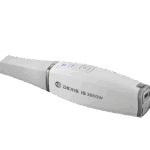1/24/08
Case Western Reserve University School of Dental Medicine, Cleveland, has partnered with Jiao Tong University to open AmeriChin, the first private orthodontic clinic in China’s major business hub in Shanghai. AmeriChin, which will open in mid April, will be located in a downtown facility and will provide orthodontic services that international and US citizens are accustomed to in their home countries.
“The number of practicing orthodontists is at the level it was in the early 1900s in the United States,” said Mark Hans, DDS, chair of orthodontics at Case Western Reserve dental school. “There is a niche to be filled in this partnership.”
Currently, China has 3,000 orthodontists. Hans estimates that AmeriChin will initially draw from approximately 40,000 members in the international community. Now, many people travel to Hong Kong to access orthodontic services. But as China continues to develop its global economy and more Chinese families move into the middle class, these families will start to seek services that enhance the quality of life. Orthodontics will be one area of services sought, Hans said.
Hans will share the title of co-director of the new clinic with Feng Bing, DDS, chair of orthodontics at the Ninth People’s Hospital. Richard Griffith, a Case lecturer in orthodontics, will become AmeriChin’s director of patient care, and Chi-Min “Jimmy” Teng, DDS, adjunct professor of orthodontics at Case who lives in Taipei, Taiwan, will coordinate logistics. Hans and Teng have worked on this project since 2003.
“There is nothing like this clinic in China,” said Griffith. He will begin setting up operations in the clinic this March.
Hans and Griffith will be among the first American dentists to receive licenses in the People’s Republic of China to practice orthodontics. They are also the first American orthodontists to join the American Chamber of Commerce in Shanghai, which is the largest in the world with a membership of more than 1,500 companies.
Hans and Griffith will travel to China numerous times throughout the year to see patients. Continued monitoring of care will take place through videoconferencing. Emergency patients will be cared for by the hospital’s orthodontic staff, which includes Bing and three other orthodontists.
The clinic will be patterned much like the Case Western Reserve University orthodontic clinic, with orthodontics students working with patients as part of their residency program. Case residents will also work in AmeriChin. Through the partnership, services will be provided in both English and Mandarin Chinese and will have a staff from both countries.
[Case Western Reserve University, January 23, 2008]







